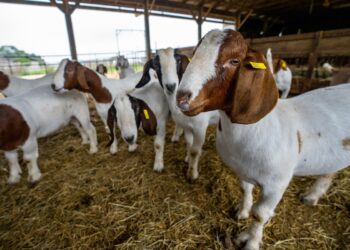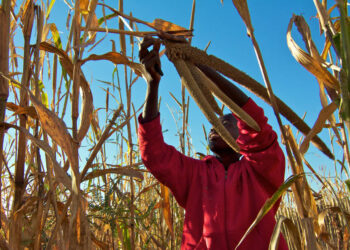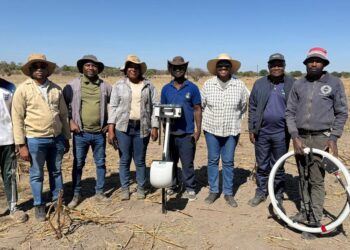
The United Nations Development Programme (UNDP) says Namibia needs to increase investment in agriculture to achieve food security amidst the raging Russia-Ukraine conflict that is threatening both global and African food security.
Russia and Ukraine are essential grain exporters to Africa, with the continent importing US$4 billion and US$2.9 billion worth of agricultural products, from Russia and Ukraine respectively in 2020. As a result of the ongoing war in Ukraine, about 20 million people in the Sahel and West Africa do not have access to sufficient food, while prices of corn, wheat and soybeans have surged.
However, the UNDP believes that the conflict presents Namibia with an opportunity to build resilient and inclusive food systems in the short-to-medium term through increased agricultural productivity.
“The increased investment in agriculture in the face of fertiliser shortages presents an opportunity for Namibia to further invest in innovation in intensive sustainable organic and green agriculture value chains,†said the UN agency in a policy brief.
The report also urged the country to implement agricultural productivity programmes and promotion of investment schemes that focus on diversifying agricultural produce and agri-processing businesses to increase the country’s export capacity, its foreign exchange earnings, and satisfy increasing domestic food needs, thereby reducing its high dependence on food imports.
It added that to promote sustainable economic growth and development in the economy and reduce the country’s heavy dependence on primary commodity exports in the long-term, there is a need for the government to strategically invest in economic diversification.
“This effort should be based on the country’s comparative advantage informed by the key findings of the Namibia SDG Investor Map. In other words, the key findings of the SDG Investor Map should inform investment in multiple sources from a growing range of sectors, sub-sectors, investment opportunity areas, and business models defined in it,†read part of the report.
The UNDP further advised that such strategic effort in the medium- to long-term should take advantage of the African Continental Free Trade Area (AfCFTA) to help strengthen inter-Africa trade, ultimately contributing to Namibia and other African countries being more resilient to supply chain disruptions and price volatility in the global economy.
“As a means of curtailing the expansion of socio-economic issues brought about by the conflict-induced inflationary pressures, the government must consider expanding its social protection programmes in the short-term, targeting those being left behind the farthest.
“This should be aimed at addressing the needs of the most vulnerable groups seriously impacted by the spill over effects of the conflict,†said the report.
Considering the erratic nature of the conflict, said UNDP, a once off social grant is not enough to help vulnerable households manage the economic shocks.
“Therefore, the Government should strongly consider a temporary basic income grant targeted at the most vulnerable to help overcome situations faced with food insecurity and inflationary pressures.â€
Although the government has adopted an integrated national financing framework as a strategic medium-to-long-term development measure to support its ability to mobilize sustainable development finance from diversified sources including domestic and international public and private finance, UNDP said it was important that the financing strategy developed from this initiative adopts a whole of society approach and is strictly aligned to the sixth National Development Plan and second Harambee Prosperity Plan as the strategy that will support their implementation.
“As part of the effort to mitigate the impact of the conflict on the country’s economy, it will also require an all of society approach manifested through series of cross sectoral dialogues that involve different development actors (development partners, civil society, private sector, and academia) and key sector Offices, Ministries and Agencies.â€
The UNDP commended the government’s initiative to invest in a sustainable renewable sector through green hydrogen project.
“This will certainly help to reduce the country’s carbon footprint and promote green technology and green production measures in other sectors such as agriculture, agri-processing and manufacturing. This effort must be anchored on pro-poor renewable energy frameworks and devolved at the sub-national level to support local economic development and socio-economic transformation in all regions of the country,†the UNDP advised
Â











